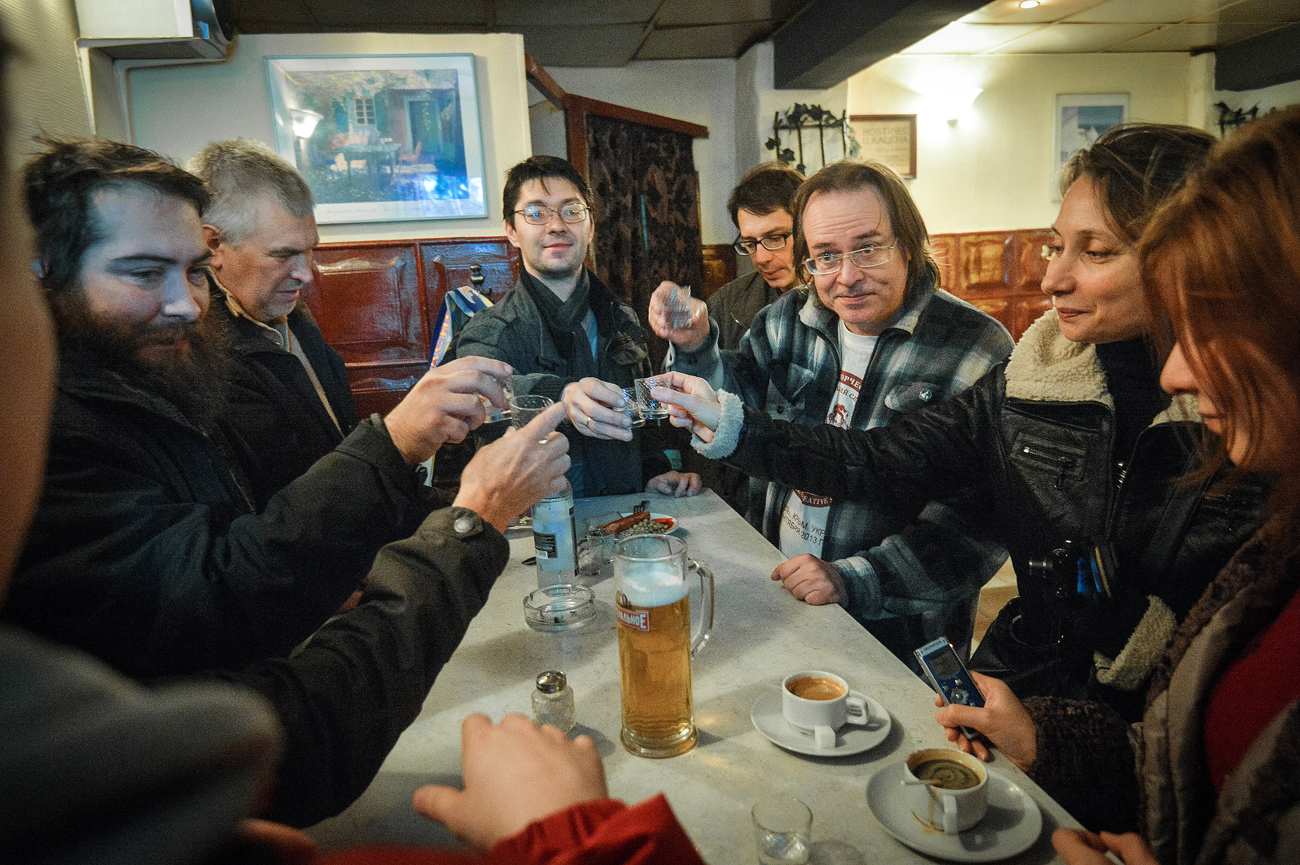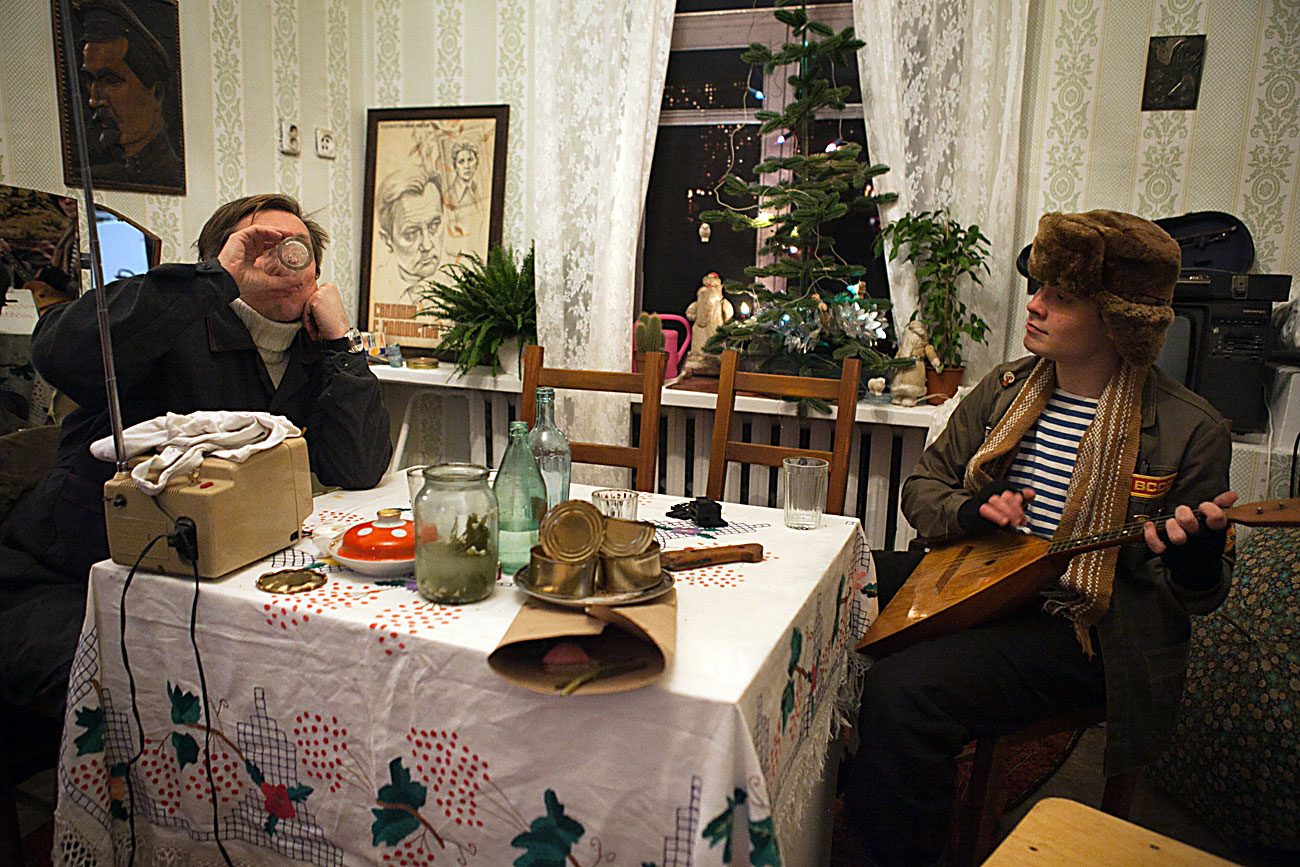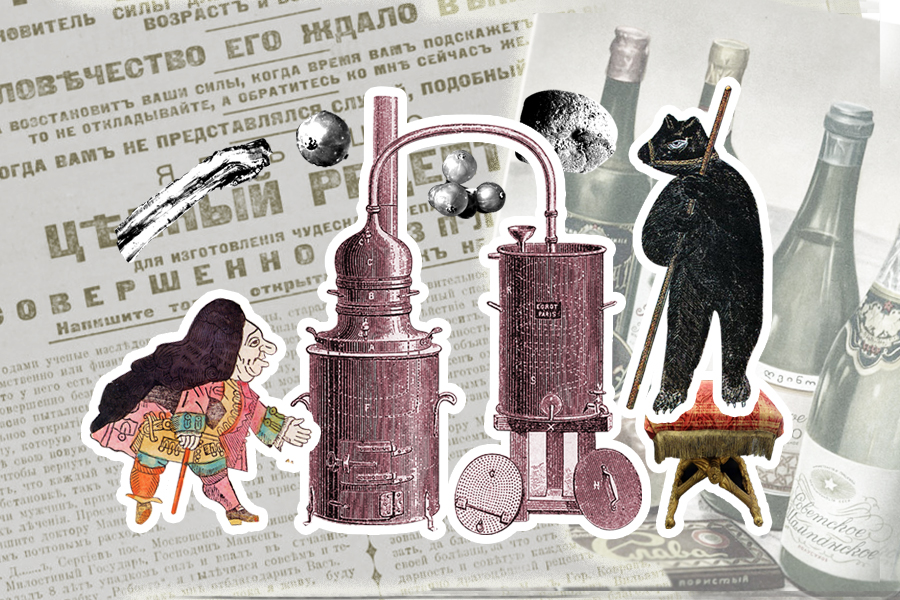Russians drinking more beer and less vodka as crisis continues

Visitors at the bar "Aist" (Stork) on Lubyansky Proyezd in Moscow.
Alexey Kudenko / RIA NovostiThe volume of retail trade turnover in Russia continues to decrease. In August, it fell by 0.1 percent compared to the previous month, while by January-August of last year, it fell by 5.7 per cent, say experts from the Russian Presidential Academy of National Economy and Public Administration (RANEPA), citing data from the state statistical agency Rosstat and a survey conducted by the Institute for Social Analysis and Forecasting.
Turnover is decreasing because the Russians are not only eating less and cutting back on spending on services, but they are also drinking less alcoholic beverages.
‘Sales of vodka dropped catastrophically’
In January-August 2016, vodka, liqueurs and brandies accounted for 42 percent of sales volume. Beer amounted to 44-45 percent of total sales of alcohol to the population. Another 12-13 percent was wine production.
Other beverages (cider, mead, etc.) made up less than 1 percent of alcohol products, acquired by the population, according to RANEPA's monitoring data.
The range of sales is clearly seasonal. In December, retailers usually sell more wine, champagne and vodka. Sales of beer, on the other hand, increase by 15-20 percent by mid-summer compared with the beginning of the year.
"Retail sales of alcohol to the population have significantly decreased over the past two years, 10.6 percent fewer alcoholic beverages were sold in January-August of this year than during the same eight months of 2014," read the report on the survey.
Retail sales of alcoholic beverages bottomed out in January and April 2016.
"Sales of vodka dropped catastrophically," Alexandra Burdyak, a senior researcher at RANEPA and one of the authors of the study, said. "The drop was 13.4 percent against the same period of last year. The main decline occurred last year, when sales of vodka decreased by 12.6 percent compared to 2014."
However, the wine production sector showed a different trend. The traditional New Year increase in sales of wine and champagne dragged on, with wine sales remaining at 2015 levels until May 2016.
According to Burdyak, consumers first finished their previously stored wine, and then, as stocks in cabinets dried out and lovers of wine and sparkling wines made sure that nothing washappening in the economy, the ruble was not strengthening and the prices of imported alcohol were not decreasing, they began to buy these types of alcohol again.
The new generation of consumers
According to Burdyak, the decrease in the consumption of vodka and other alcoholic beverages has been steady since 2013. Strong alcohol consumption peaked in 2007, and it has been in decline since then.
The tastes of the Russians who were born in 1985 and later were shaped under the influence of Western, primarily European trends; they prefer wine, beer and other light alcoholic beverages.
However, Vadim Drobiz, director of the Center for Federal and Regional Alcohol Market Studies (TSIFRRA), believes that it is a little early to talk about a reduction in alcohol consumption in Russia.
"Because of the crisis, the main consumers of alcoholic drinks could have switched to cheaper options, this is possible," he said. "But few people are capable of seriously saving on alcohol."
Drinking away the crisis
Vodka consumption fell from 53 percent of retail sales measured in terms of absolute alcohol content in 2007-2009 to 39 percent in 2015. During the same period, the share of beer increased from 31-32 percent to 43 percent of total sales of alcoholic beverages to the population.
The total volume of retail sales is calculated in terms of absolute alcohol content as follows: Half a liter of vodka (40 percent alcohol) is equal to 200 grams of ethanol; one liter of beer (4 percent) is equivalent to 40 grams, and one liter of wine (12 percent) contains 120 grams of ethanol.
These trends seem set to continue in the next few years, experts say, though some have reservations.
"It should be borne in mind that consumers, and the Russians certainly in my experience, consider strong alcohol to be an antidepressant," Drobiz said. "And that means that consumption of vodka and other spirits in the context of the ongoing economic crisis is not likely to fall."
First published in Russian by Gazeta.ru
Subscribe to get the hand picked best stories every week
All rights reserved by Rossiyskaya Gazeta.
Subscribe
to our newsletter!
Get the week's best stories straight to your inbox

